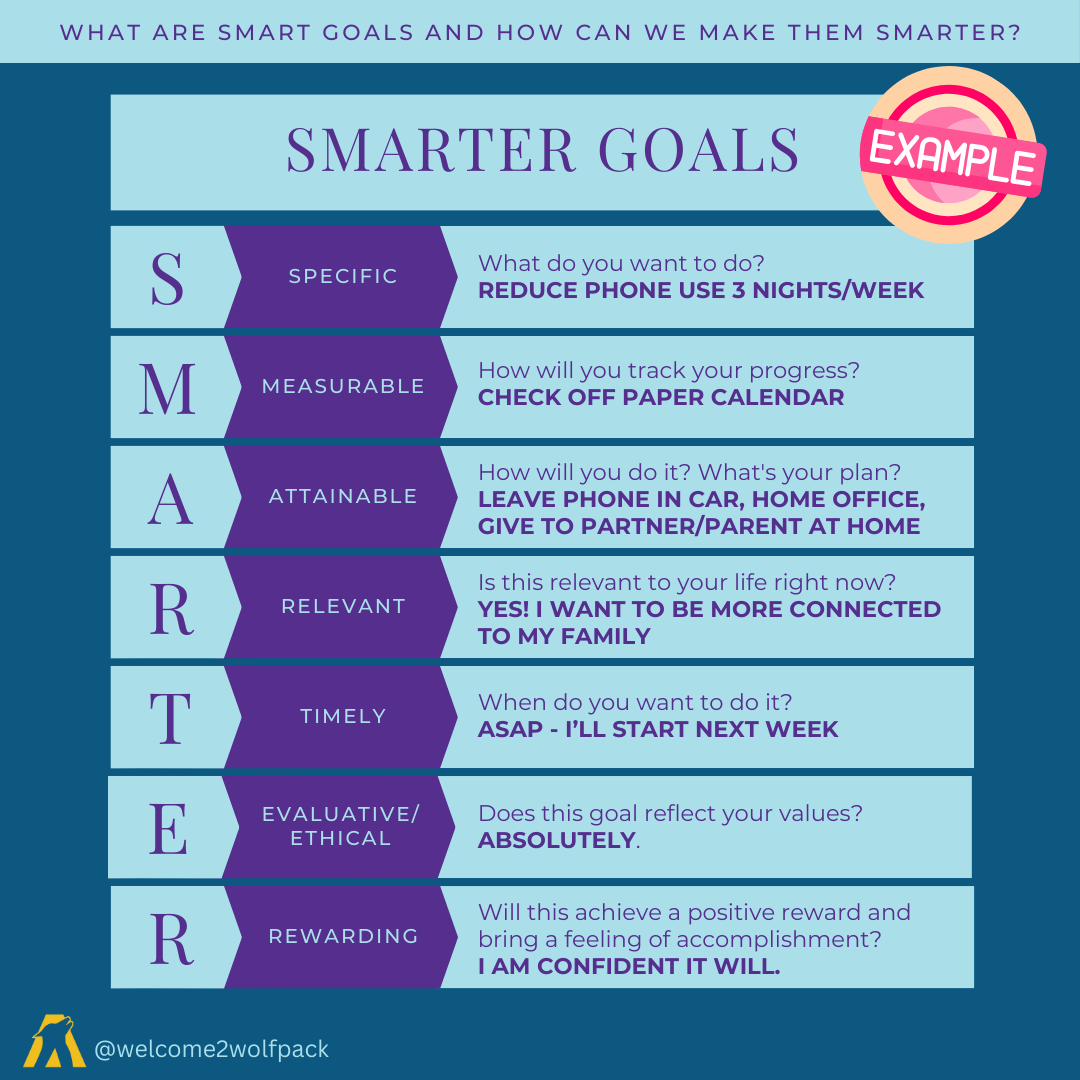What are SMART Goals, and how can we make them SMARTER?
Okay, real talk. Goal-setting is not everyone’s jam. However, we have a theory: not all goals are set or achieved equally. Personalities, time/place, training/modeling, and past decisions that didn’t pan out create loads of fear that can thwart our desire to strive to build the lives we want.
The reality is this: we’ve all set goals and fell short or even by a long shot. It’s the perceived failure that your brain focuses on as opposed to the wins - goals you have achieved - especially when you’re struggling with mood disorders, self-esteem, or identity challenges. Goal-setting has become an intimidating process where we see the roadblocks and pitfalls over the bridges and life preservers, especially in areas we might feel unsure about.
But what if we told you that science is clear re: the benefits of SMARTER goal-setting? Setting goals is linked with higher motivation, self-esteem, self-confidence, and autonomy (Locke & Latham, 2006), and research has established a strong connection between goal-setting and success (Matthews, 2015).
Today’s lesson from The Den focuses on SMART goals:
S-M-A-R-T goals stand for:
S (Specific): They target a particular area of functioning and focus on building it.
M (Measurable): The results can be gauged quantitatively or at least indicated by some qualitative attributes. This helps in monitoring the progress after executing the plans.
A (Attainable/Achievable): The goals are individualized and targeted to suit people. They are flexible in that regard, considering that no single rule suits all.
R (Realistic): They are practical and planned in a way that would be easy to implement in real life. The purpose of a smart goal is not just providing the plan,
but also helping the person execute it.
T (Time-bound): An element of time makes the goal more focused and provides a time frame for task achievement.
While this was the golden rule of goal-setting, researchers added two more aspects...the S-M-A-R-T-E-R rule:
E (Evaluative/ethical): The interventions and execution follow professional and personal ethics.
R (Rewarding): Goal-setting results are rewarded positively and give the user a feeling of accomplishment.
Reach out any time to explore your goals with a Pack Therapist:
312-373-0325
info@wolfpacktherapy.com
wolfpacktherapy.com






